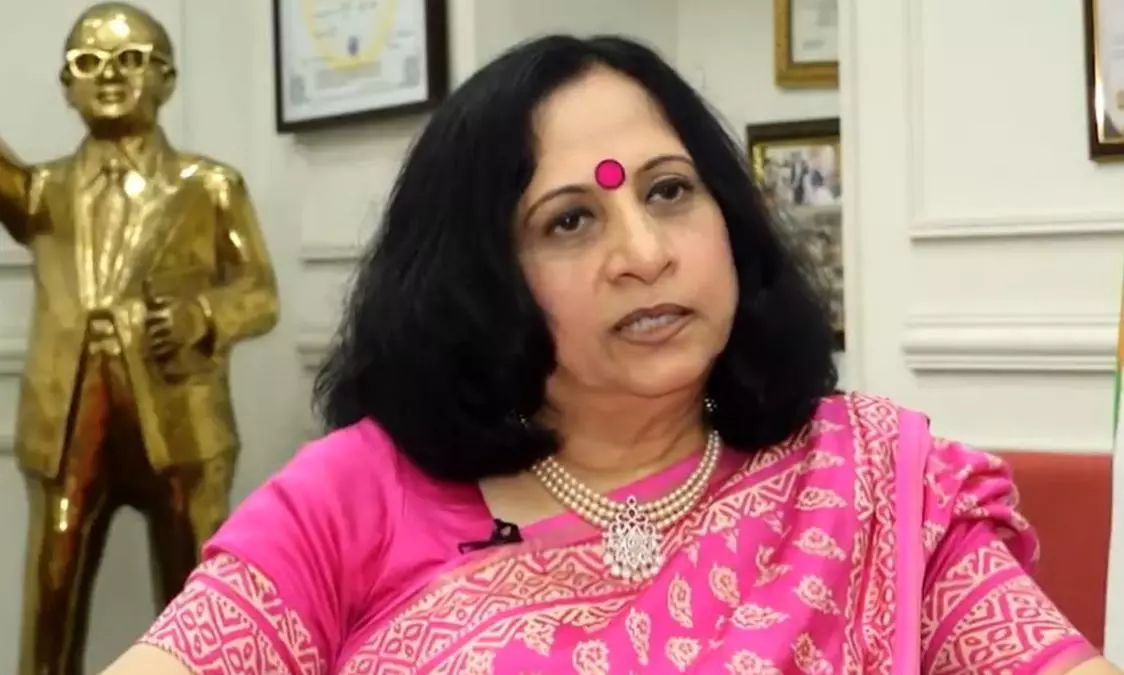
‘India is a foreign word’: AUD VC on Bharatiya Knowledge System in curriculum
text_fieldsNew Delhi: Dr B R Ambedkar University Delhi (AUD) is consciously using the term ‘Bharatiya Knowledge System’ instead of ‘Indian Knowledge System’, with Vice Chancellor Anu Singh Lather stating that “India is a foreign word.” Emphasising the university’s cultural identity and academic autonomy, Lather said the terminology reflects a deeper philosophical and historical awareness.
“The word ‘India’ itself is foreign to all of us,” she said in an interview with PTI.
According to Lather, AUD has recently approved 54 compulsory BKS courses to be integrated across departments such as history, law, heritage management, and political philosophy. These are not optional electives but mandatory courses designed to embed indigenous knowledge systems into mainstream higher education.
“We took nearly two years to finalise these courses. Every reference cited includes the original source – the Upanishads, Mahabharata, or Arthashastra – down to the chapter, verse, and line. We've done serious academic groundwork,” she said, calling it perhaps the most rigorous BKS model in any Indian university.
The curriculum spans a wide range of themes, including Bharatiya foundational political philosophy, yoga and the self, Indian aesthetics, Bhakti as Gyaan, traditional legal systems, and ancient Indian science and technology.
Lather noted that the courses were developed with input from national-level experts and underwent thorough academic review before being approved by the university’s Academic Council.
Positioning itself as a thought leader within the National Education Policy (NEP) framework by aligning its academic vision with the ideals of Babasaheb Ambedkar. Vice Chancellor Anu Singh Lather emphasised that the university is not in competition with others but is guided by a distinct academic identity that redefines what knowledge is considered central.
“We are not competing with other institutions. Our vision, rooted in Babasaheb Ambedkar's ideals, guides our distinct academic identity, including our approach to what knowledge deserves to be central,” she said.
This shift, Lather noted, is part of a broader effort to reclaim indigenous intellectual traditions and reshape postcolonial academic discourse. The university’s adoption of the Bharatiya Knowledge System (BKS) and its integration into core curricula reflect this commitment to embedding culturally rooted frameworks into higher education.
(inputs from PTI)












